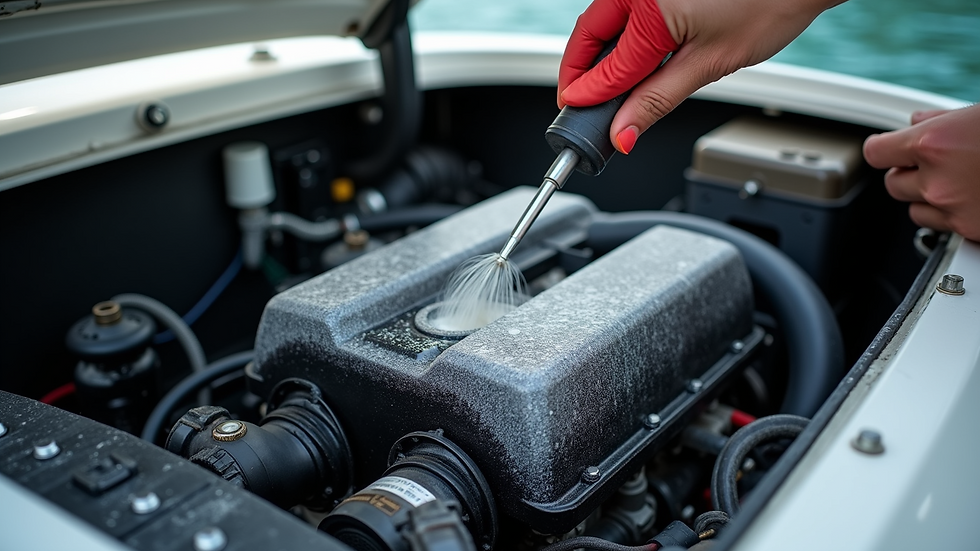10 Basic Boating Safety Tips
- Oct 26, 2018
- 3 min read
Updated: Dec 3, 2018

It doesn’t matter how much experience you may have, it will always be a wise idea for you as well as your friends and family to review boating safety rules before you depart the dock. We’ve compiled 10 basic boating safety tips to help you and your friends and family stay safe:
Be weather-smart
Always check the local weather conditions before departing; TV and radio forecast are a good source of information. If you happen to notice darkening clouds, if you notice turbulent and rough changing winds or drops in temperature, its best to play it safe by getting back to shore and off the water.
Follow a Pre-Departure Checklist
Conventional boating safety includes always being prepared, like a Boy Scout, for any possibility you could have on the water. Following your pre-departure checklist is the best solution to ensure no boating safety rules or precautions have been forgotten!
Use Common Sense
One of the most significant parts of boating safely is to use your common sense, we can not stress this enough! That ALWAYS means operating at safe speeds (especially in crowded areas and no wake zones), always stay alert and steering clear of larger vessels and watercrafts that can be restricted in the ability to stop or to turn. Also, please be respectful of all buoys and navigational aids, all have been placed there for your own safety!
Designate an Assistant Skipper
It is good practice to have more than one person on board your boat that is familiar with all things of boat handling, operations, and general boating safety! If your primary navigator is injured or not able to assist in anyway, it is important to ensure someone else can follow the proper safety rules to get everyone else back to shore.
Develop a Float Plan
Always be sure to let others know of your float plan, whether you choose to inform a family member or staff member at your local marina. This plan should include where you’re going and how long you’re going to be gone for.
A float plan should include the following information:
· Name, address, and phone number of trip lead
· Name and phone number of all passengers aboard
· Boat type and registration information
· Trip itinerary
· Types of communications and signal equipment onboard, such as an Emergency Position Indicating Radio Beacon (also known as EPIRB) or Personal Locator Beacon (also known as a PLB).
Make Proper Use of Lifejackets Onboard
Fact: Most drowning victims are the result of boaters not wearing their lifejackets! Make sure all your friends and family aren’t part of the statistics by assigning and fitting every passenger onboard with a lifejacket prior to leaving the dock. Wear it!
Avoid Alcohol
That’s not the words most people want to hear. But practicing boating safety always with saving the alcohol for later consumption. Boating accidents double when alcohol is involved, and studies show that the effects of alcohol worsen by the addition of sun and wind.
Learn to Swim
We all know that if you’re going to be around the water, proper boating safety should always include knowing how to swim! American Red Cross and other organizations offer training for all ages and abilities. Check to see what classes are offered in your local areas.
Take a Boaters Safety Course
New boaters and experienced boaters alike need to be familiar with all boating safety rules of operations. Boater Safety education requirements very by state; however, some will require a validated completion of at minimum one boating safety course. But regardless of your state’s requirements, it is always important to educate and prepare for all circumstances that may arise. You can also learn boating safety rules by taken a local course in your community or online course to help educate yourself!

Consider a Free Vessel Safety Check
You should always take advantage of a free vessel safety check from the U.S. Coast Guard. They offer respectful boat examinations to verify the condition and presence of certain, if not all, safety equipment required by the local and federal regulations. Free of charge! They will provide a specialist to check out your boat and recommend helpful boating safety tips. They will also offer virtual online checks as well.





Comments